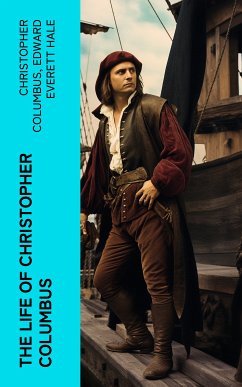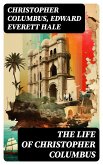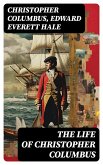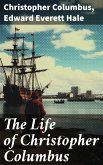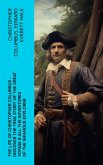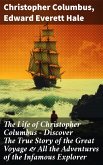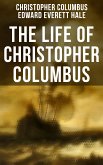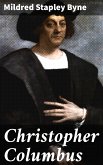This eBook edition of "The Life of Christopher Columbus" has been formatted to the highest digital standards and adjusted for readability on all devices. To these days, the best authorities agree that the children and the grown people of the world have never been mistaken when they have said: "America was discovered in 1492 by Christopher Columbus, a native of Genoa". But what do we really know about the man behind this name, the life behind the myth? Discover the man that experienced incredible adventures, the man with ferocious drive, but still a man of flesh and blood whose life story, spirit and destiny will move you in a way you didn't expect. Contents: Early Life of Columbus: Birth and Birth Place Early Education Marriage and Residence in Lisbon Plans for the Discovery of a Westward Passage to the Indies Columbus Leaves Lisbon, and Visits Genoa Visits Great Spanish Dukes Six Years at the Court of Ferdinand and Isabella The Council of Salamanca Petition at Last Granted-squadron The Great Voyage: The Squadron Sails Refits at Canary Islands Hopes and Fears of the Voyage The Doubts of the Crew Land Discovered The Landing on the Twelfth of October The Natives and Their Neighbors Search for Gold Cuba Discovered Columbus Coasts Along Its Shores Landing on Cuba The Cigar and Tobacco Cipango and the Great Khan Cuba to Haiti Discovery of Haiti or Hispaniola Hospitality and Intelligence of the Natives Colony to Be Founded Columbus Sails East and Meets Martin Pinzon The Two Vessels Return to Europe The Azores and Portugal Columbus Is Called to Meet the King and Queen His Magnificent Reception Negotiations With the Pope and With the King of Portugal The Second Expedition Sails From Cadiz Touches at Canary Islands Discovery of Dominica and Guadeloupe Skirmishes With the Caribs Porto Rico Discovered Hispaniola The Fate of the Colony at La Navidad The New Colony Guacanagari Discovery of Trinidad ...
Dieser Download kann aus rechtlichen Gründen nur mit Rechnungsadresse in A, B, BG, CY, CZ, D, DK, EW, E, FIN, F, GR, H, IRL, I, LT, L, LR, M, NL, PL, P, R, S, SLO, SK ausgeliefert werden.

